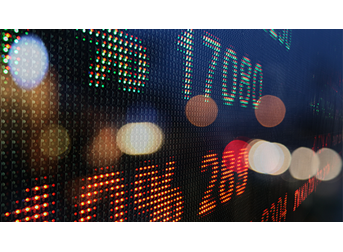Daily Market Pulse

Dollar advances as volatility ramps up
5 minute readUSD
The dollar index advanced over 102.2 levels on Friday after seeing heightened volatility in previous sessions, as traders assessed an influx of U.S. data released Thursday. Data indicated that the Federal Reserve's rapid interest rate hikes are already having an impact on the economy. Lower-than-expected unemployment claims in the United States last week, on the other hand, signaled another month of healthy job growth and ongoing labor market tightness. Meanwhile, a chorus of Fed members reaffirmed their commitment to tighter policy this week, with Vice Chair Lael Brainard stating that rates will need to remain elevated for some time in order to temper inflation further.
EUR
The Euro is losing ground today as traders await the speech of European Central Bank (ECB) President Christine Lagarde. Lagarde stated on Thursday that "inflation is simply too high" and that the central bank will "keep the course with rate hikes," defying market forecasts of lower ECB rate increases. According to the accounts of the European Central Bank's December policy meeting, some policymakers initially argued for a 75-basis-point interest rate increase, as inflation was clearly expected to be too high for too long, and the worsening outlook required a rate hike larger than that priced in by markets.
GBP
Sterling is falling back after gaining 0.35% on Thursday as investors weighed the disappointing retail sales and consumer confidence figures. Consumer sentiment declined for the first time in three months in January, falling to near-historic lows. At the same time, British consumers unexpectedly reduced their spending in December, fueling fears that tighter financial policies may push the economy into recession this year. Optimism over China's reopening, which had been bolstering animal spirits, evaporated this week, with rising concerns about the global economy's path and continuing inflation taking the wheel.
JPY
Following the announcement of the inflation statistics, the Japanese Yen is moving lower (1.2%) against the U.S. dollar. Investors shrugged aside another strong inflation figure that reinforced the Bank of Japan's case for a policy shift. The country's annual core inflation rate reached a new 41-year high of 4% in December, exceeding the central bank's 2% target for the ninth consecutive month and casting doubt on the central bank's assessment that recent cost-push inflation will be temporary. The BOJ recently bucked market expectations by maintaining ultra-low interest rates and maintaining its yield control strategy unaltered. Nonetheless, speculators increased their bets that the Bank will need to change policy shortly as inflationary pressures rise.
CAD
The Loonie is losing ground today after gaining 0.2% the day before. The increased volatility caused by recession fears strengthens the greenback, undermining the Loonie. On the statistical front, Canadian wholesale sales were revised considerably lower in November, resulting in a 0.5% month-on-month increase. WTI oil futures, on the other hand, climbed above $81 a barrel on Friday and were set to rise for the second week in a row, supported by an improving demand picture in China and supply concerns stemming from tightening sanctions on Russian flows. This is expected to give the Loonie some upside traction during the day.
MXN
The Mexican Peso fell (0.55%) for a second day on Thursday, as other emerging-market peers fell amid concerns about the U.S. growth forecast. In recent news, Mexican senators decided on Wednesday to confirm Omar Mejia's appointment to the Banxico board of directors through the end of 2023. Mr. Mejia has sworn into the office right away. Citi thinks that Mejia, prior to being an advisor to Deputy Governor Galia Borja, will back her policy stance and policy recommendations of Banxico Governor Victoria Rodriguez, "at least in the immediate term." In today’s session, Peso is regaining its ground and is up 0.20% against the greenback for the day.
CNY
China's Yuan fell against the U.S. dollar on Friday as investors worried about the economy's recovery path after statistics indicated Covid cases had reached their highest level since the outbreak began. According to a weekly World Health Organization data released on Thursday, the number of persons hospitalized with Covid in China increased by 70% to 63,307 in the week ending Jan. 15. Meanwhile, China's central bank held benchmark lending rates steady for the fifth month in a row on Friday, keeping one-year and five-year loan prime rates at 3.65% and 4.3%, respectively. Deputy Governor Xuan Changneng of the PBoC recently stated that the board has vowed to make additional efforts to promote market confidence and assistance for manufacturers and small businesses.
BRL
The Real opened another day lower on Friday amid the global market's increased risk aversion due to the possibility of a U.S. recession. Domestic investors are also watching the incoming government's economic policy signals. In the internal scenario, the market echoes new signs of economic policy on a day with an empty docket for the release of economic figures. After President Lula declared in an interview with Globonews on Wednesday that the independence of the Central Bank of Brazil is "nonsense," Minister of Institutional Relations Alexandre Padilha stated that the government has no intention of changing the institution. The speech reassured investors. Abroad, with rising inflation and interest rates, there is a growing fear that the United States could enter an economic recession.

